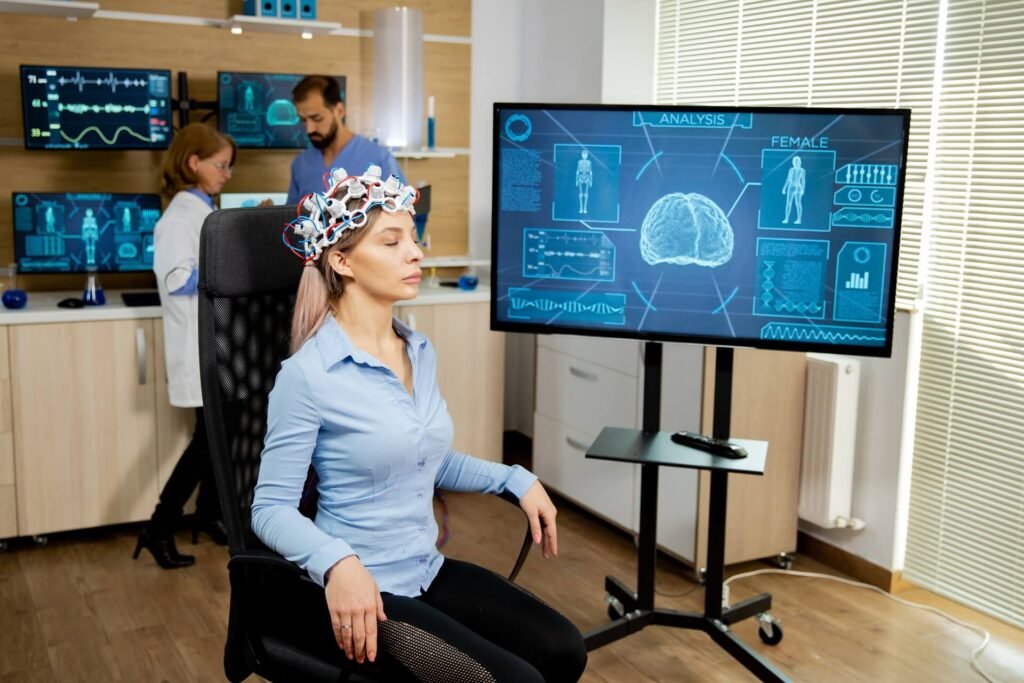Abstract
Biofeedback training is a method commonly used in various fields of life, for example, in medicine, sports training or business. In recent studies, it has been shown that biofeedback, and neurofeedback, can affect the performance of professional athletes. Training based on the neurofeedback method includes exercising the brain waves. The aim of the article is to evaluate the influence of neurofeedback training on the physical fitness of professional athletes representing various sports disciplines, such as judo, volleyball and soccer. Based on 10 scientific papers from various sources, including PubMed, the latest research on neurofeedback and its impact on athletes has been reviewed. On the basis of the literature review from 2012 to 2022 on the neurofeedback method in sports training, it can be stated that this type of practice has a significant impact on physical fitness and sports performance. This review comprised 10 research studies with 491 participants in the neurofeedback groups, and 62 participants in the control group. Two reviewers independently extracted data and evaluated the quality of the studies utilising the PEDro scale. Properly planned and conducted neurofeedback training affects stimulation and improvement of many variables (reducing stress levels, increasing the ability to self-control physiological factors, enhancing behavioural efficiency and meliorating the speed of reaction to a stimulus).
1. Introduction
Sports training is a specific form of exercise. Its effectiveness depends on properly selected methods. Excessive training loads can result in overtraining, while insufficient training loads do not lead to significant sports achievements [1]. It should be pointed out that all professional athletes require not only basic physical training to improve motor skills, but also mental training, which develops athletes’ concentration and resistance to stress [2]. The methods used in sport psychology include rest management, psychological assessment and neurofeedback [3]. Over the past decade, research teams from around the world have focused on studies regarding the effectiveness of EEG (electroencephalogram) training and its benefits for athletes. Nowadays, achieving sports performance at the highest level requires not only motor preparation, but also taking mental training into consideration. Research in this area allows proving the benefits for the psychophysiological sphere of subjects such as stress control, which is a must in professional sports. Pressure related to results, training staff and sponsors are factors that interfere with the management of stress, directly affecting performance and athletic ability. In our review, we aim to gather scientific evidence on the effectiveness of biofeedback training and to determine its benefits for athletes.



